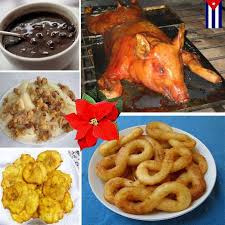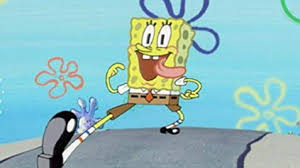My mother was illiterate and never had a chance to go to school. She fled Cuba for the United States during the political turbulence of 1958 with her infant son.
What my mother lacked in formal education she made up for in street smarts. She, like so many other refugees, did whatever had to be done to get a job.
“Do you know how to waitress tables?” she would be asked. “But of course, back in the old country I was the head waitress in one of the most famous and busiest restaurants in the city,” she’d respond with flair, even though she’d never carried a tray of dishes in her life.
“But can you read English?” the potential employer would ask. “But of course, I have a high school diploma from the old country,” she confidently replied. In reality, she simply memorized some important phrases found on most menus. She did get the job, and I, her son, got fed.
If I had been an ethicist back then and approached my mother questioning her character, her virtues or her values, she would simply have laughed at me for my naiveté.
If she demonstrated the virtue of honesty and confessed she had no work experience, no education and could barely speak the language, she would never have been hired. In those days, there were no “ESL” classes, work-readiness programs and the like.
Yet the moral reasoning she employed facilitated her surmounting societal structures fundamentally averse to her very existence. “Which is more ethical,” I imagine her asking me, “doing what needed to be done to get the job so that I can feed my family, or letting the sins of others–people who don’t care and won’t help us–force us to live on the streets?”
For her, living on the streets was not hyperbole. It was the reality she faced, and against which she fought, so that she could meet the basic needs of her family with dignity.
My mother’s condition, both in <?xml:namespace prefix = st1 ns = “urn:schemas-microsoft-com:office:smarttags” />Cuba and later in the U.S., was due to impoverishment, sexism and ethnic discrimination. Although she never read the theological works of historically marginalized women, I have no doubt that the alternative ethical paradigm they present would have resonated with her experience.
Just as the heroes of the faith, Abraham and Sarah, exploited and abused Hagar their slave girl, so too was my mother exploited and abused by “good people,” who capitalized on her inability to resist hierarchical structures designed to benefit them at her expense–due mainly to her marginalized status as a women, specifically a poor Latina woman.
God did not liberate Hagar from her oppression, but did empower her to survive and endure the institutionalized forces responsible for her marginalization. The spring found in the desert, where none existed before, enabled Hagar to survive.
Likewise, God enabled my mother, who could neither speak the language nor wait tables, to “make a way out of no way” by waitressing.
She couldn’t read books, but in the depth of her soul, she understood the essence of theological ethics from the margins, and that the religion of Jesus is a survival technique for the oppressed.
My mother’s hope was to rely on a God that always provided the means and resources to meet the harsh realities of life. She wrote no grand thesis on the subject, but taught me this concept via her oft-stated aphorism: “Dios aprieta pero no ahogar (God squeezes but does not choke).”
How easy it is for the intellectual elite to dismiss my mother, along with others who are disenfranchised, as unschooled and untrained in comprehending the proper implementation of sound ethical principles. In their minds, her “opinions” were biased perceptions based on her circumstances, no matter how unfortunate her situation was.
Nevertheless, while she lacked the means to articulate her ethics properly to a learned audience, still, it is my mother, along with others who are marginalized, that I constantly have in the back of my mind as I wrestle with the ethical paradigms constructed in the prestigious halls of academia.
Their moral reasoning is not the product of neatly categorized concepts found in theological textbooks, but rather, a product of the messiness of struggling to meet basic needs within a social structure that successfully facilitates the failure of the marginalized.
What then does Euro-centric ethical theory, formulated from the secure space of privilege where employment is taken as a given, have to say to my mother? But more importantly, what can my illiterate mother teach those at the center of society about their own “biased opinions” of ethics as it relates to the everyday?
As of the writing of this article, on Resurrection Sunday, my mother’s life has now drawn to a close two days ago. I will remember and thank God for her joys, her struggles and her vibrant life.
First Published in Ethics Daily



